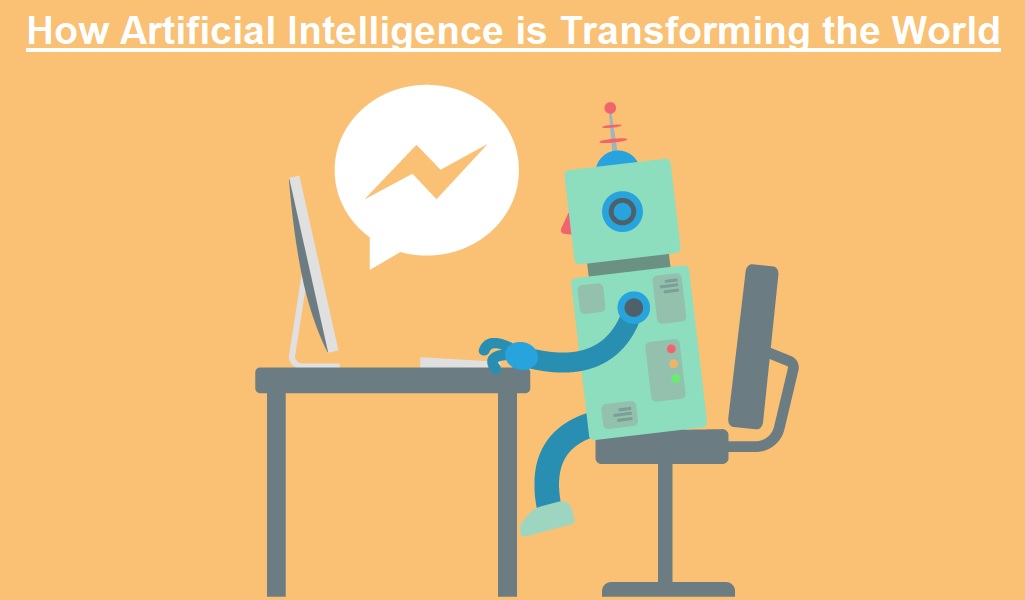Artificial Intelligence (AI) is a technology that assists organizations in revolutionizing the integration of information and data analysis, as well as enhancing decision-making via the use of results-based insights. AI has an impact on people's daily lives, the economy, and government.
This article will explore how Artificial Intelligence (AI) is revolutionizing the world, including its use across numerous industries, its progress, and some tips you can use to get the most out of AI while maintaining human values.
What is Artificial Intelligence (AI)?
As you may be aware, there is a lot of buzz regarding artificial intelligence (AI), but do you know what it is? To be more specific, it is the vast discipline of computer science that focuses primarily on constructing intelligent machines by imitating human intellect. Now, this technology has become so widespread and widely available that anyone can order AI development services and develop a high-tech solution that he or she needs.
In other words, merging human intellect with computer systems simplifies complicated activities that need human intelligence. Is this an idea that you are unfamiliar with? It may seem, though, that you employ AI technology and get its advantages unintentionally every day.
What Impact Does Artificial Intelligence Have on the World?
There are several new AI-based software and technologies that are impacting our lives every day, as well as future interactions employing the machines that scientists have invented. These are the primary areas where Artificial Intelligence Technology is becoming more useful and will have a greater impact in the future:
1. Finance
By evaluating finely parsed data to uncover patterns and irregularities, AI improves financial decision-making. For example, high-frequency trading bots are used in financial markets to boost investment research and decision-making.
Another use of AI in banking is fraud detection. It reduces the burden of detecting fraudulent actions before they have an impact on your firm. It identifies aberrant actions that need further inquiry. Financial analysts may discover issues before they become public.
2. Smartphones
Artificial intelligence is prevalent in our digital life. People may not be aware of it yet. Furthermore, the impetus for AI is already developing. Massive quantities of data that computers can acquire about each other's likes, purchases, and activities on a daily basis have greatly aided in the development of distinctive and effective commercial strategies. Artificial intelligence specialists and researchers utilize all of this data to train robots that can learn and anticipate what we want to make our lives simpler, better, and quicker.
3. Education
After the closure of all educational institutions in 2020, there will be apparent automation in the AI industry. Digitization of textbooks, virtual tutoring, and emotion detection in pupils through face recognition are all new novel ways supported by AI.
4. Transportation
AI is also making inroads into the transportation and car industries. Electric, self-driving automobiles are increasingly being produced by global automobile manufacturers. With built-in AI technology, they provide an excellent user driving and trending experience. To give you an example, Tesla's basic autopilot has adopted adaptive lane catering and cruise control, which is one of their great breakthroughs.
5. Cybersecurity
To stay ahead of hackers, AI development businesses are increasingly focusing on cybersecurity. Self-learning and automation Artificial Intelligence Technologies will also assist individuals in more effectively securing their data, keeping them safe from small-scale identity thefts, hackers, and terrorists. It will prevent computer viruses and harmful applications from accessing the systems' substantial critical data.
6. Smart Cities
Modern governments are attempting to be proactive in service delivery, and artificial intelligence is at the forefront of these efforts. It allows companies to gather and analyze enormous volumes of data in order to enhance answers to public requests, resource management, energy consumption, environmental planning, and crime prevention.
Conclusion:
Artificial intelligence technology has advanced so rapidly that it is no longer a pipe dream. Even while some of the most sophisticated and specialized types of AI, such as fully autonomous automated automobiles or pharmaceuticals that entirely cure the body, have yet to come, artificial intelligence technology is already making a significant influence in a variety of industries. It has really revolutionized the world in which we live.








COMMENTS